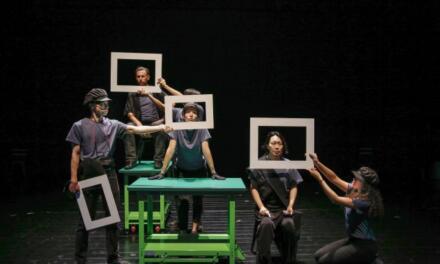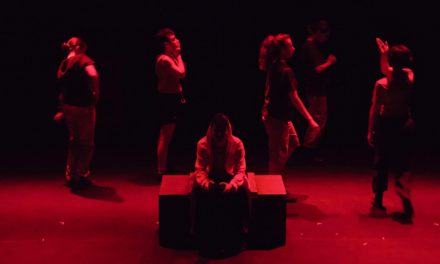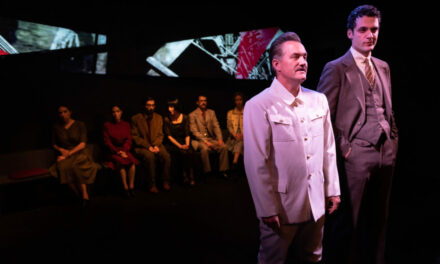“If one is to rule, and to continue ruling, one must be able to dislocate the sense of reality.”
– George Orwell
The Icelandic political scene has imploded. Again. Well, for the third time in less than a decade. This time it was not a financial meltdown, or a paper-trail leading to Panama, but something deeply, devastatingly personal, and in some people’s opinion much more sinister as it involved the sexual abuse of minors.
Unlike the other two times, this implosion did not happen overnight but was a slow burn over multiple months. But, when the spark ignited the government coalition collapsed in a flash during the early hours of Friday the 15th of September with the day culminating in one of the strangest theatrical events ever seen in Iceland, with an astounding coincidence at its heart. First, a more detailed backstory is necessary. After the Panama Papers scandal of last year, an election was called. It soon became clear that a three-way coalition would be the only way to form a majority government. After a long and convoluted negotiation, a tentative agreement was forged between three parties from center to the right: The Independence Party, the Reform Party, and Bright Future.
It was a majority of one MP, so the coalition was tenuous at best but Parliament slogged on for the remainder of winter months and then came summer recess. In mid-June, a report surfaced confirming that a convicted child-molester and disbarred lawyer had been reinstated to the bar. The reason: His honor had been officially restored by the government on September 16th the year before. The procedure is based on an archaic policy wherein convicted prisoners can apply to the Justice Department to get certain civil liberties back, their name thus cleared by government officials, provided that they go through an application process and have written recommendations from two individuals. That decision is then finalized by the President’s signature. The process is notoriously murky; no list of applicants was available nor names of the individuals who recommended that their honor be restored. People were incensed, the sexual abuse survivors and their families demanded full disclosure of the documents.

Julia (Thuridur Blaer Johannesdottir), Winston (Thorvaldur David Kristjansson) and O’Brien (Valur Freyr Einarsson). Photo by Grimur Bjarnason.
So far this has mostly been a story of political theatrics, a bureaucratic dance of shadows and mirrors. Here is where the actual theatre enters the story. By pure, and un-real, coincidence within the same twenty-four hours the government collapsed, almost a year to the day that the man who violated his daughter got his honor restored, the person partially responsible for the implosion premiered 1984 based on George Orwell’s novel at the Reykjavik City Theatre. His name is Bergur Thor Ingolfsson, a well-known theatre director, actor, and father of one of the sexual abuse survivors involved in the furore. Throughout the summer he was very visible in the media and social media calling for explanations and proper government transparency. Little did he know that it would all come to a head on the 15th of September when the play he was directing about a government oppression opened on the same day that the actual Icelandic government would fall. Turns out that the can of worms that a small group of people opened by voicing their demands for justice had uncovered another child molester whose honor had been restored. One of the signatories of the second man’s letters of recommendation was the father of the Prime Minister.
“The past was erased, the erasure was forgotten, the lie become truth.” – 1984, George Orwell
The atmosphere in the Reykjavik City Theatre was charged, one could almost touch the tension and anticipation. However, the tension never hit a fever pitch during the production. Reality had in actuality become stranger than the story on stage. There were also certain issues that the production never resolved starting with the script itself. The adaptation by Robert Icke and Duncan Macmillan feels both convoluted and rushed, like the team are trying to do too many things in a short span of time. They break up the narrative, make the narrator even more unreliable than in the book and forgo quite a lot of the social context. The issue of class is almost completely ditched, something that is weaved throughout the book and little details make the atmosphere feel unbearably oppressive are gone. However, it might be unfair to judge the script not having seen the original Almeida production, which by most accounts was a critical success.
The impression left by the production is not rooted in what was occurring on stage but the social environment the production was occurring in. One felt discombobulated, and nervous laughter would sometimes erupt in the auditorium at the most inopportune moments. Sentences that hit too close to home, audience members seeing the narrative from a new angle. Room 101 became an even more chilling metaphor when O’Brien counts the different ways your most terrifying nightmares can manifest within its walls: Drowning, being engulfed in a fire, someone raping your child…
Even though the world of Orwell is set in a dystopian, surreal future it somehow could not compete with the actual facts of current Icelandic reality. And strangely, at the same time, it was hard to connect with the world being created on stage. The ideas of the novel felt uncomfortably prescient yet the actual production felt strangely distant, like watching an ant farm rather than the dangerous and very possible reality of human existence.
Icelandic social memory might be long, the country still mourns a devastating loss to the Danish football team in 1967, but the country’s political memory is short. Like some sort of strange mutation of Orwell’s “doublethink,” in real life. Iceland has yet to see the full consequences of the collapse of this government. Elections will be held at the end of October and the future is decidedly unclear. However, these facts will not be altered in the style of 1984’s Truth Ministry: The Icelandic government was toppled by the force of a few, 1984 opened at the Reykjavik City Theatre on the same day as the coalition imploded directed by one of the catalysts of the collapse, and even though theatre might never replace reality it remains a poignant reflection on both current events and the human condition.
This post was written by the author in their personal capacity.The opinions expressed in this article are the author’s own and do not reflect the view of The Theatre Times, their staff or collaborators.
This post was written by Sigríður Jónsdóttir.
The views expressed here belong to the author and do not necessarily reflect our views and opinions.


















